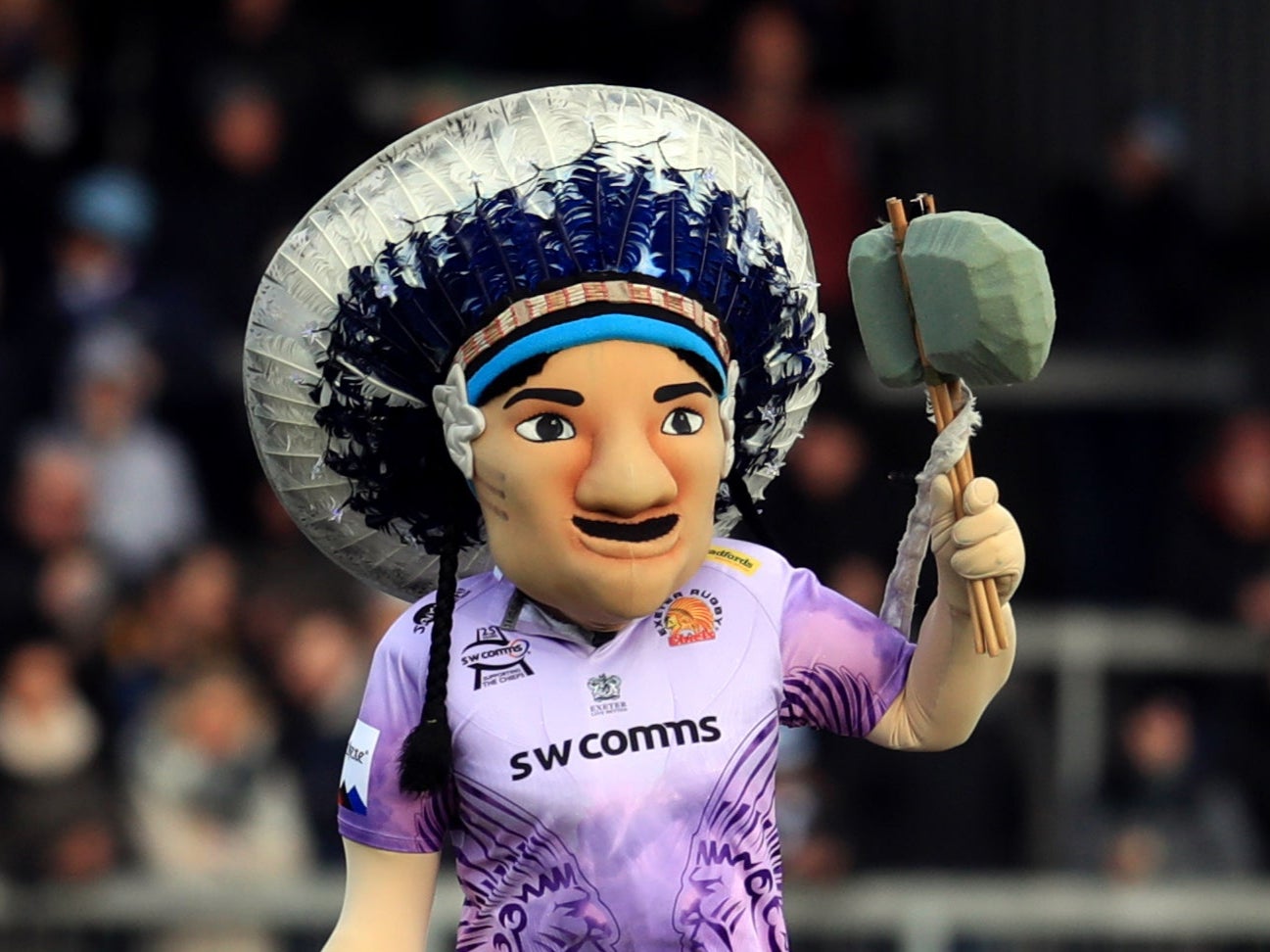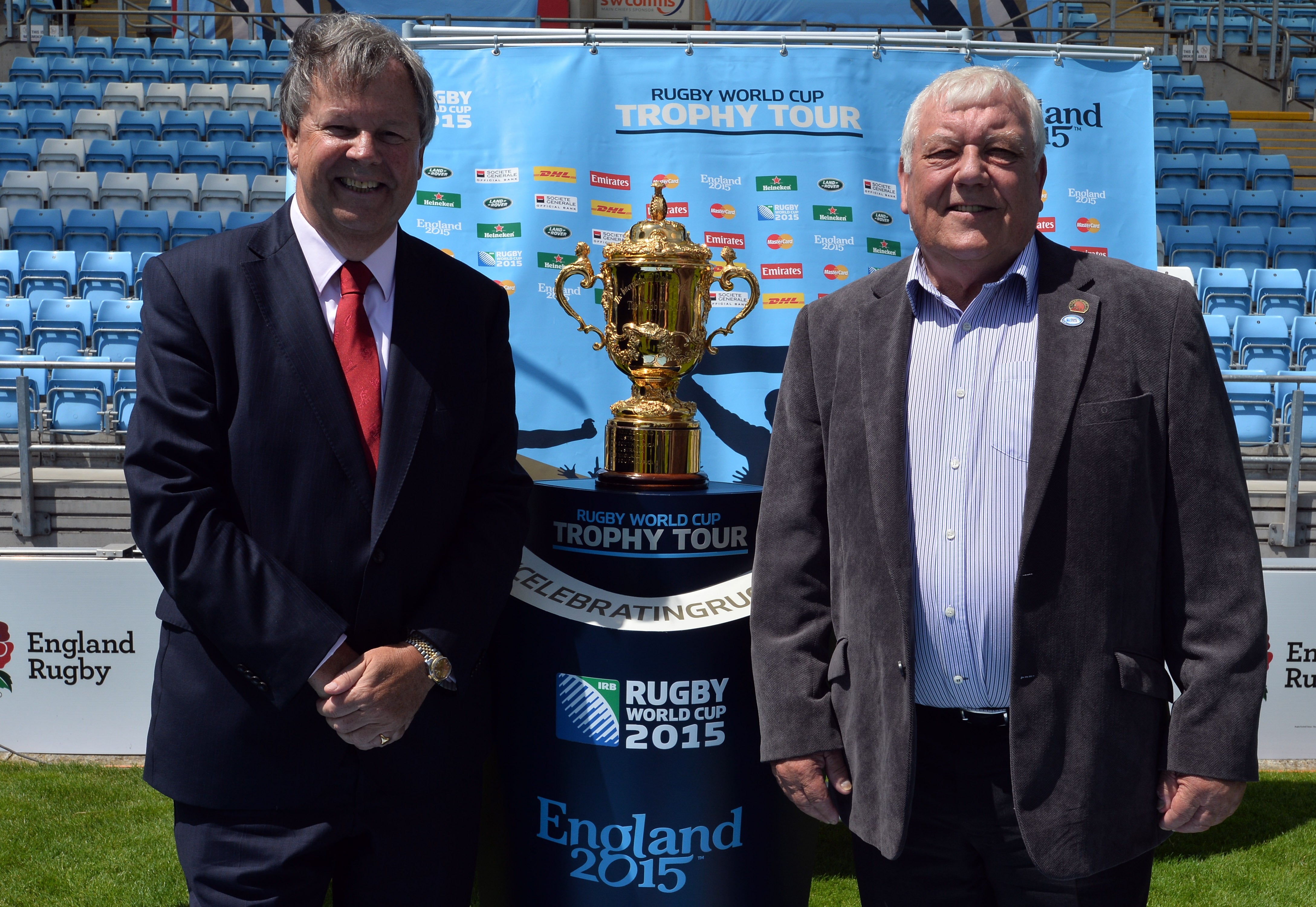Wasps urge fans not to wear ‘faux Native American headdresses’ to matches
Opponents Exeter have been at the centre of a long-running storm around accusations of cultural appropriation

Your support helps us to tell the story
From reproductive rights to climate change to Big Tech, The Independent is on the ground when the story is developing. Whether it's investigating the financials of Elon Musk's pro-Trump PAC or producing our latest documentary, 'The A Word', which shines a light on the American women fighting for reproductive rights, we know how important it is to parse out the facts from the messaging.
At such a critical moment in US history, we need reporters on the ground. Your donation allows us to keep sending journalists to speak to both sides of the story.
The Independent is trusted by Americans across the entire political spectrum. And unlike many other quality news outlets, we choose not to lock Americans out of our reporting and analysis with paywalls. We believe quality journalism should be available to everyone, paid for by those who can afford it.
Your support makes all the difference.Wasps have urged supporters not to wear “faux Native American headdresses” to matches at the Coventry Building Society Arena.
The Coventry club host Exeter in Gallagher Premiership action on Saturday, with the Devon club having been at the centre of a long-running storm around accusations of cultural appropriation.
Exeter rejected the option to drop the moniker Chiefs following a petition and club investigation in July 2020, but did retire club mascot Big Chief.
Wasps have revealed club supporters have asked for guidance on “cultural signifiers”, with the Midlands outfit asking for guidance from the RFU (Rugby Football Union) and Premiership Rugby.
“At this current time, we will not be issuing an arena-wide ban on the wearing of faux Native American attire, as one club acting in isolation has the potential to cause further division and uncertainty,” read Wasps’ statement.
“However, we do not support the wearing of such items, discourage supporters from wearing them and will be revisiting this decision in due course.
“Wasps want to be part of positive equality, diversity and inclusivity change, and will continue to encourage the entire rugby community to take action against inequality and other forms of discrimination. We are committed to doing more to tackle racism and to championing diversity in sport.
“Since 2020, several sports teams around the world have recognised that the appropriation of another culture is something they can no longer justify.
“Last year there was a public focus on the prominent use of appropriated names and iconography by professional franchises including the Washington Football Team (formerly known as the ‘Redskins’ until July 2020) and in Canada, the Edmonton Eskimos have become the Edmonton Elks.
“Respect for all cultures is a crucial part of including everyone in this amazing game. We at Wasps believe that cultural appropriation, ‘the act of taking or using things from a culture that is not your own, especially without showing that you understand or respect this culture’ and, therefore, the wearing of faux Native American headdresses has the potential to cause offence and doesn’t align with our values.
“However, having taken counsel on this issue, it is clear that to drive real change we need a sport-wide position to be reached.
“We have, therefore, approached Premiership Rugby, the RFU and the RFU’s newly formed Diversity and Inclusion working group to ask that this issue is formally addressed.”
While Wasps’ statement stops short of name-checking Exeter directly, the timing is doubtless little coincidence, with the Chiefs heading to Coventry this weekend.

“The club was recently asked by one of our supporter groups to review the wearing of faux Native American headdresses and other cultural signifiers at our stadium,” continued the statement.
“We have found it difficult to know how best to deal with this issue, which is why we have taken time to consult those more knowledgeable about this subject, including a number of external stakeholders and members of the Native American community.
“Wasps made a commitment to put equality, diversity and inclusion at the heart of what we do. This club, and the wider rugby community, is at its best when every person involved in the game feels respected, included, and supported.
“Recent events such as the Black Lives Matter movement, the continued racist abuse aimed at high-profile sports stars and rising intolerance towards LGBTQ+ people have made it clear that diversity and inclusion are not just political issues, they are human ones.
“We know that engaging in dialogue and being prepared to voice an opinion will sometimes be uncomfortable, difficult and may not always be popular. Having the conversation though and being willing to listen, question, reflect and learn, is how we move forward and hold ourselves to account.
“Many topics and behaviours which were once tolerated, such as cultural appropriation, are no longer acceptable. Just because something isn’t offensive to you, doesn’t mean it isn’t offensive.
“Even though we do not want to create a professionally offended society, we do need to recognise that times and opinions change.”